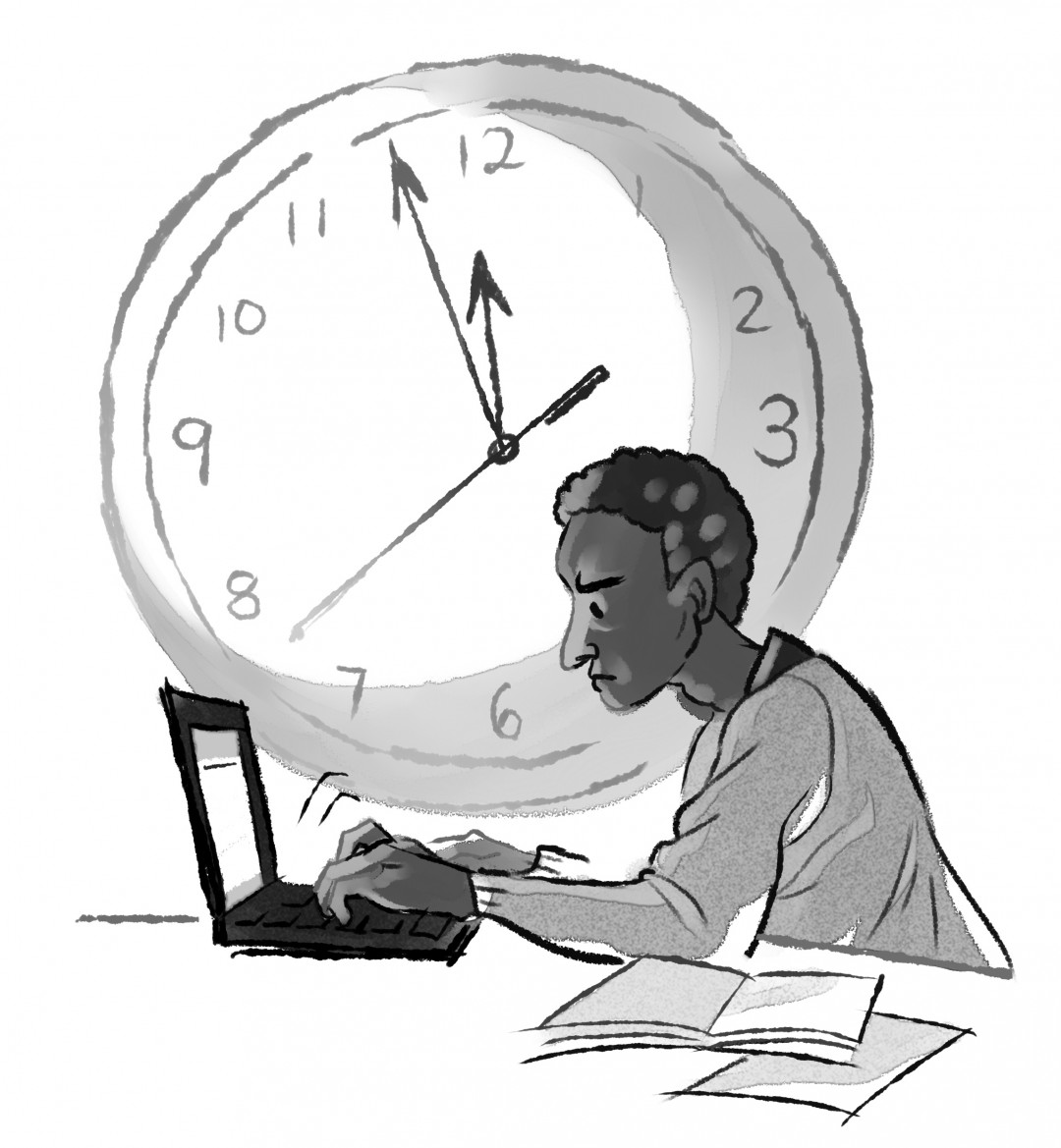In an ideal world, you would be able to give more than four days to writing your university papers, or maybe they would only take an hour to write and you could go back to binge watching Netflix. I’m with you. Here’s a compromise: four day-long tasks broken down to help you stay focused, and on track.
Thinking and Research
Sit down in a cozy corner of a coffee shop with a tiny espresso, leather bound notebook, and an inquisitive gaze. Otherwise, plant yourself in the library with the artificial light emanating from your laptop screen.
Spill all thoughts about the essay topic onto a piece of paper. Highlight what is most interesting to you, and come up with general ideas about the problem you would like to explore in your essay.
Organize your research. Collect sources that you expect will be highly relevant. When you are reading them through, write down specific quotations from each source in a numbered list. Then, put your sources in order — you can order them by author’s last name, usefulness, hair colour, or anything else that tickles your fancy. You now have a directory of research for your planning stage. Write down citations in the appropriate style.
Depending on the length of the paper, add more sources until you feel you have enough to proceed to planning. Try to make sure you have a variety of perspectives, and that most sources are very recent.
Planning
This is your most important essay-writing day. Coffee is recommended.
Go through your research materials and define your thesis.
Outline a general roadmap for your paper, including the topic of each paragraph, and how it relates to your thesis.
Create a massive planner. I use one separate page for each anticipated paragraph, and lay them out on a large surface.
Start going through each paragraph on your planner and fill in excerpts from your research that give support to that paragraph. (Use quote A–1, then D–22, etc.)
Write out your full introduction. This is pretty much just for morale boost, so that you can say you have started writing the actual essay at the end of the first day. Plus, introductions help to give you a clear idea of what the rest of the paper should look like.
Writing the bulk
Take out the pages of planning materials from the day before.
Reference them to write each paragraph of the paper.
Do not stop writing, and do not reread your work at this point. If your ideas were sound yesterday, they should come out fine today.
Relax, all you have to do today is try to make the ideas you had the day before clear and coherent. A glass of wine (or five) can help lubricate the transmission of words from brain to page.
Stop writing when you are about 70 per cent done, or when you begin to fall asleep on your keyboard, whichever comes first.
Writing the rest and editing
Finish writing in the same manner as the day before.
Take a long break.
Edit. Be very critical of your language, and make sure that your paper says what you want it to say.
Check your citations, and check to make sure you have cited in every place that you referenced someone else’s idea.
Read through and make minor changes.
Write a title that is two-parts smart and one-part sassy.
Do not forget to hand in the paper. Really though. Do not. Forget. To hand in. The paper.
